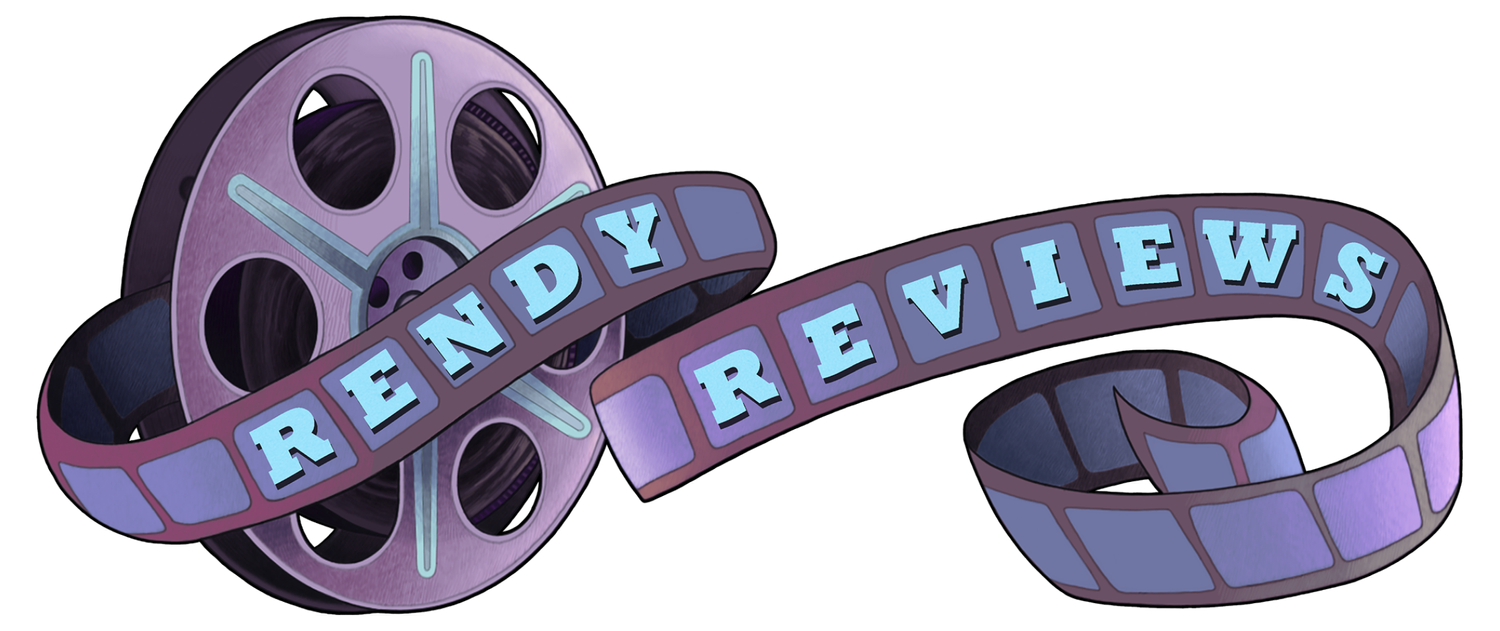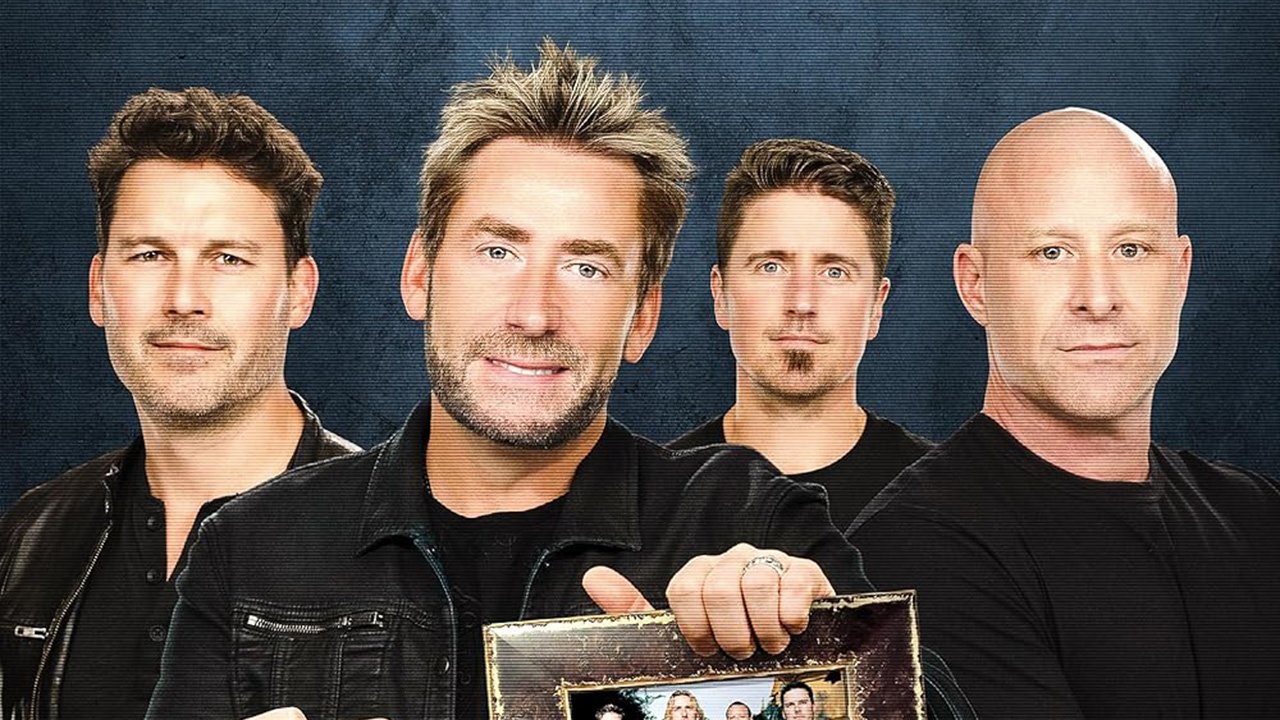'Hate to Love: Nickelback' Review: Music Doc Commercially Chronicles Canada Band’s their Long Road | TIFF 2023
NR
Runtime: 1 Hour and 30 minutes
Country: Canada
Production Companies: Gimme Sugar Productions, Nickel Plated Films, Submarine Deluxe
Distributor: N/A
Director: Leigh Brooks
Cast: Chad Kroeger, Mike Kroeger, Ryan Peake, Daniel Adair, Ryan Vikedal
Release Date: N/A
TIFF 2023 Coverage
During the transition from the ‘90s to the aughts, Canadian-based band Nickelback bridged the grunge and nu-metal subgenres and birthed butt-rock. Believe it or not, butt-rock is one of the top five music genres I bop to. So yes, I am a Nickelback fan. "How You Remind Me" and "Hero" are my go-to songs at karaoke. Believe it or not, I slay on stage with them. Anyway, this review isn't my Nickelback manifesto. Still, I would love to pay my respects to the programmer who scheduled Hate to Love: Nickelback's P&I screening at the IMAX Scotiabank Theater during TIFF. I don't care that the sound mixing wasn't adequate. I got to sing along to Nickelback songs on the big screen.
Director Leigh Brooks chronicles the rise and commercial success of Canadian-based band Nickelback, told from the lens of talking head interviews with frontman Chad Kroeger, his brother Mike, bassist Ryan Peake, drummer Daniel Adair, and former drummer Ryan Vikedal. In 1995, young wannabe musicians from Alberta—Peake and the Kroeger bros—founded a cover band called Village Idiot. They soon decided to make real music from the basement or garages of each other's houses. Nickelback found mainstream success in 2001 following the release of the banger "How You Remind Me." Their newfound sound changed modern rock, and people from alt to metal were unhappy. When mean-spirited cynicism ingrained itself in internet culture humor, Nickelback became the most hated band across the interwebs. That is how memes and social conformity killed the band's image, and then social media (and Deadpool?) resurrected them.
Remember that ‘90s VH1 docu-series Where Are They Now? where they researched entertainment trends, notable celebrities, or bands that hadn’t been on the public’s radar for a while? Hate to Love: Nickelback might as well be an episode of that but expanded to a 90-minute length. If anything, it plays as a "where we've been and where we are today," but more intimate with the band members.
As someone who knew very little about the band outside their songs and Canadian status, it's an endearing reflection on their career up to this point. I had no clue that Chad Kroeger's brother existed, let alone that he was a band member. Mike Kroeger primarily narrates the band's origins and milestones. Its most compelling aspect was that the band, best known for the song “Rockstar,” were laid-back dudes whose careers launched right around the time most of them—excluding Chad—became family guys. The bandmates treated tours as a legitimate job as they recalled the pain they felt being away from their wives and kids. The documentary is tonally light, like a fluff piece. However, Brooks shines a light on each individual, and even Chad, the most described party guy, bears such a chill personality. He even harbors a vulnerable side that makes him more mature with age, which he often addresses to the camera.
The most enticing member (to me) is Daniel Adair, who left Three Doors Down in the mid-2000s and joined Nickelback later in their career. He discusses a sense of imposter syndrome, which took him a long time to get over. It's nice to get to know the band as regular Canadian guys who talk about the trials of stardom—burnout, missing family, public marriages, criticism—with a surprising coat of maturity. Call me whatever, but I'm a sucker for famous men in industries designed to turn them into assholes who are genuinely good guys, sincere with their fans, and passionate about raising their families. Maybe it's a Canadian thing because many of them are reasonably friendly. Not all, but a lot of them. At least from my experience.
If only the doc itself was less commercialized than what Nickelback received flack for.
There's a ton of potential regarding the "Hate to Love" aspect in the doc's title. However, the film skirts around the glaringly overdue discussion about how prominent cynicism was during the social media heyday between the late 2000s and most of the 2010s. There's a larger conversation about the hatred of mainstream products because of the humor in meme culture and criticism that the movie barely even notes. The internet stained Nickelback's reputation and targeted other innocent mainstream bands, like Imagine Dragons, U2, Limp Bizkit, and Sum 41. Nitpicky channels like CinemaSins and *insert every annoying white man YouTube critic who loves to hate on everything* inspired many people to think that mindlessly hating media using baseless logic as evidence defined what criticism is today. At best, the doc mentions how the internet backlash made every band member, Chad specifically, very depressed.
As the film progresses, it also brings up another internet cultural milestone that helped shape their comeback: TikTok. At that point, I'm slamming my head against the wall, frustrated at how Brooks and Nickleback dip their toes in the water rather than diving head-first into tonal changes in social media.
By God, the film even plays a scene from the PG-13 Deadpool 2 recut, Once Upon a Deadpool, in which Deadpool scolds Fred Savage for dissing Nickelback. Somehow, he put the overused "I hate Nickelback joke" in a coffin, which is ironic since Deadpool is a primary culprit of being influential in internet culture and meta/pop culture-based humor. Man, that topic was ripe for discussion, and the documentary disappointingly approached the subject as a light-hearted VH1 special.
Overall, Hate to Love: Nickelback is an entertaining and endearing overview of the band's career to date—especially one to delight Nickelback fans. Sadly, for a band with a prolific status in the culture outside of music, the pivot from creating a nuanced discussion about the evolution of internet humor leaves the doc's potential greatness Farrrrr Awayyyyyy.





